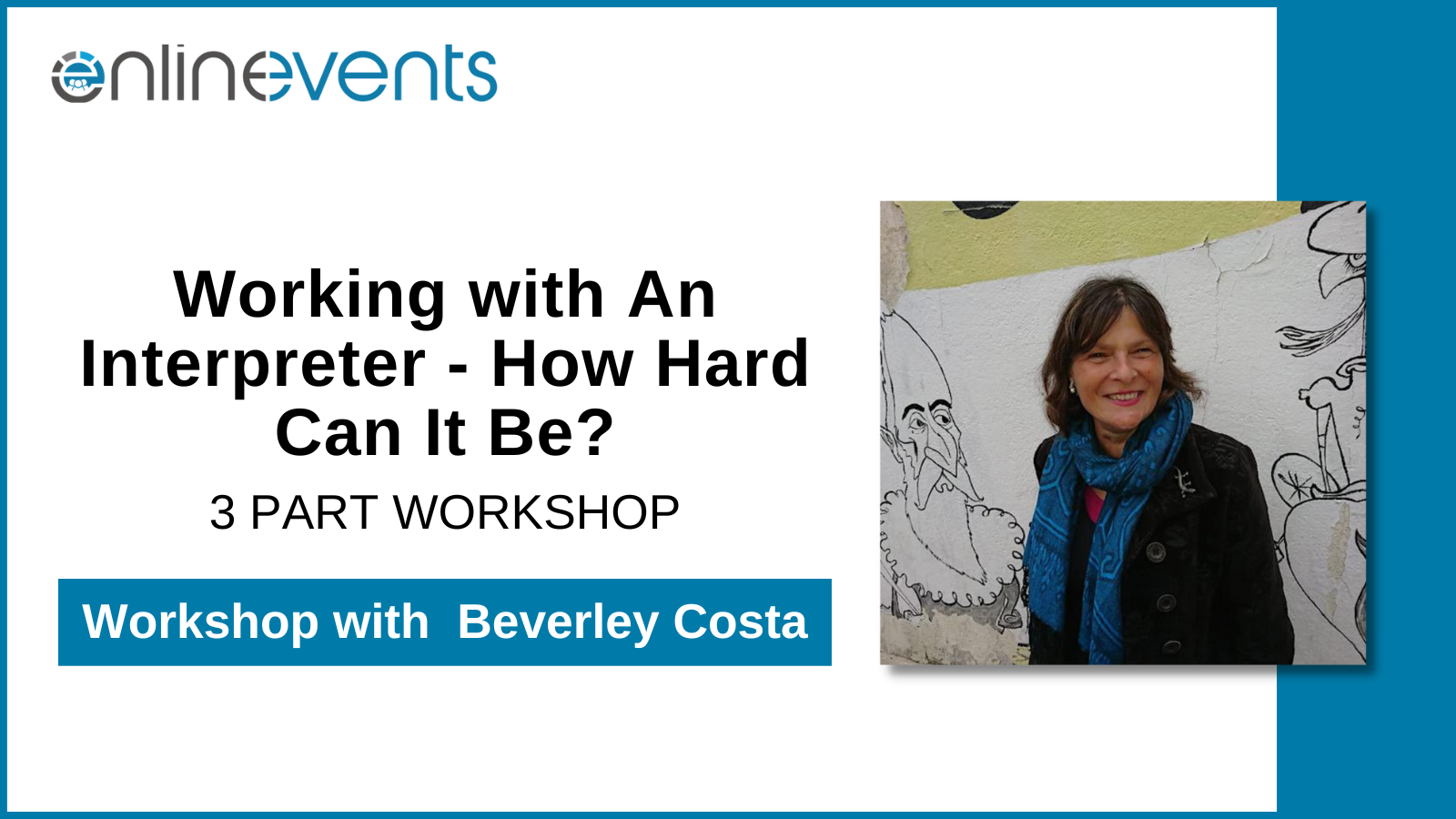Is working with interpreters as hard as it sounds? It doesn’t have to be.
This training gives you the knowledge and the confidence to provide effective interpreter-mediated counselling and psychotherapy to those who need it including asylum seekers, refugees and trafficked people.
The series of three two-hour workshops provides an opportunity to learn about the interpreter-mediated relationship and to develop the relevant skills to work effectively with an interpreter. Drawing from two decades of training therapists to work with interpreters, we reflect on research findings, a variety of case examples, exercises, and implementation tips. We hope the training will help you to feel confident and enthusiastic about working with spoken language interpreters.
In the sessions we consider a selection of the following issues and we offer implementation tips about:
- working effectively with an interpreter
- a “prevention is better than cure” approach
- issues of power and safety in a ‘triad’
- coping with exclusion (our own!)
- boundaries and ethical considerations
- cross cultural communication
- “talking about the talking”
- power dynamics and relationships with both client & interpreter
- impact on clinical authority when you don’t understand the language(s) spoken in the room
Because of the cumulative nature of the training, you will need to be able to attend all three sessions.
Each of the three two-hour sessions includes a half hour question and answer section, the last of which will be with an interpreter.
Why does being able to work with interpreters matter?
Just over one million people cannot speak English well enough to access psychological therapy in English (from 2021 Census in the UK) This includes 91,000 Ukrainian refugees from the war in Ukraine who have settled in distinct parts of the UK. Many had to flee quickly. They didn’t have a chance to learn English. Like members of my family when I was growing up, they can’t conduct a conversation in English. What are they supposed to do if they need help? Maybe they get referred to you for support because you are a psychological therapist or a counsellor? What if the only way to talk to each other is through a spoken language interpreter?
Many therapists are not keen to work with an interpreter. Some don’t even believe it is possible to deliver therapy effectively via an interpreter. Often therapists, dealing with competing demands, think this doesn’t really concern them. Someone else will do it.
It is understandable if psychological therapists, not trained in interpreter-mediated therapy, find the idea of a triadic – rather than a traditional dyadic – relationship in the room daunting. But it doesn’t need to be like that. Many therapists, who have received training and are prepared, work very productively with interpreters. They often find that working with an interpreter can enhance patients’ therapeutic experiences. Most patients are profoundly grateful for the chance to be heard.
Patients who need a spoken language interpreter are among the most vulnerable members of our society. They are often people who have endured and witnessed experiences that most of us could not even imagine. Asylum seekers, refugees, survivors of torture, victims of trafficking – they are all denied access and equity of support with their mental health needs because they require their own words and the words of their therapists to be translated. That just doesn’t seem fair. No client who needs an interpreter should find themselves discriminated against because of their linguistic skills, excluded from counselling and therapy that should be available to everyone. Equal access to counselling and therapy won’t happen on its own. It requires everyone to make an effort. Someone else won’t do it.
Please join us for this brief series of three training sessions on how to work effectively with interpreters in therapy. The sessions each last for two hours and include a question and answer section with an interpreter.
A further series of sessions is planned on the topic of working with the multilingual experience of clients. This is suitable for all counsellors and psychological therapists whether or not you share similar home languages with your clients.
Although some of the training session may be applicable to working with sign language interpreters, participants may wish to refer to (for example) the NHS Guidelines for Working with British Sign Language/English Interpreters in Mental Health Settings or the Association of Sign Language Interpreters (2020) for 53 further information.
Course Content
Presenter

After qualifying as a psychotherapist, Beverley Costa set up Mothertongue multi-ethnic counselling service (2000-2018) for multilingual clients. In 2009 she created a pool of mental health interpreters, in 2010 she established the national Bilingual Therapist and Mental Health Interpreter Forum and founded The Pásalo Project in 2017 www.pasaloproject.org to disseminate learning from Mothertongue.
She has trained over 5,000 therapists for NHS services and NGOs, in working therapeutically across languages and with interpreters since 2013. She is a Senior Practitioner Fellow at Birkbeck, University of London and a Senior Visiting Research Fellow at the University of Reading.
In 2020, Pásalo created an e-learning resource for the British Association for Counselling and Psychotherapy: The Social Response Cycle – about effective therapeutically framed social action.
https://www.bacp.co.uk/cpd/social-response-cycle-member-resource/
In the same year (2020), The Paul Hamlyn Foundation awarded The Pásalo Project funding through its Ideas and Pioneers programme to create a free e-learning resource on mental health and multilingualism https://www.pasaloproject.org/multilingualism-mental-health-and-psychological-therapy—course-content.html .
She has run Reflective Practice Support groups for interpreters, psychological therapists and counsellors, nurses, teachers, lawyers, and psychosocial workers. She has developed an introductory course in facilitator skills for running Reflective Practice Groups which has been delivered online to organisations in England, Scotland, Wales and Belgium. She is the author of Other Tongues -psychological therapies in a multilingual world https://tinyurl.com/Other-Tongues


